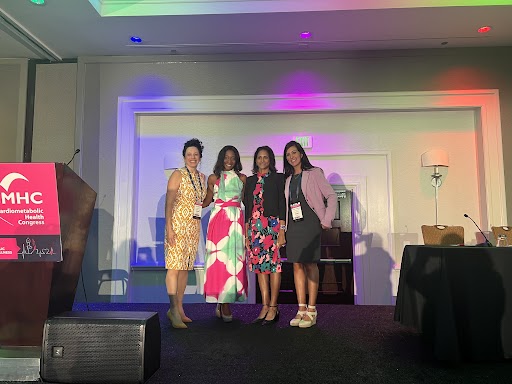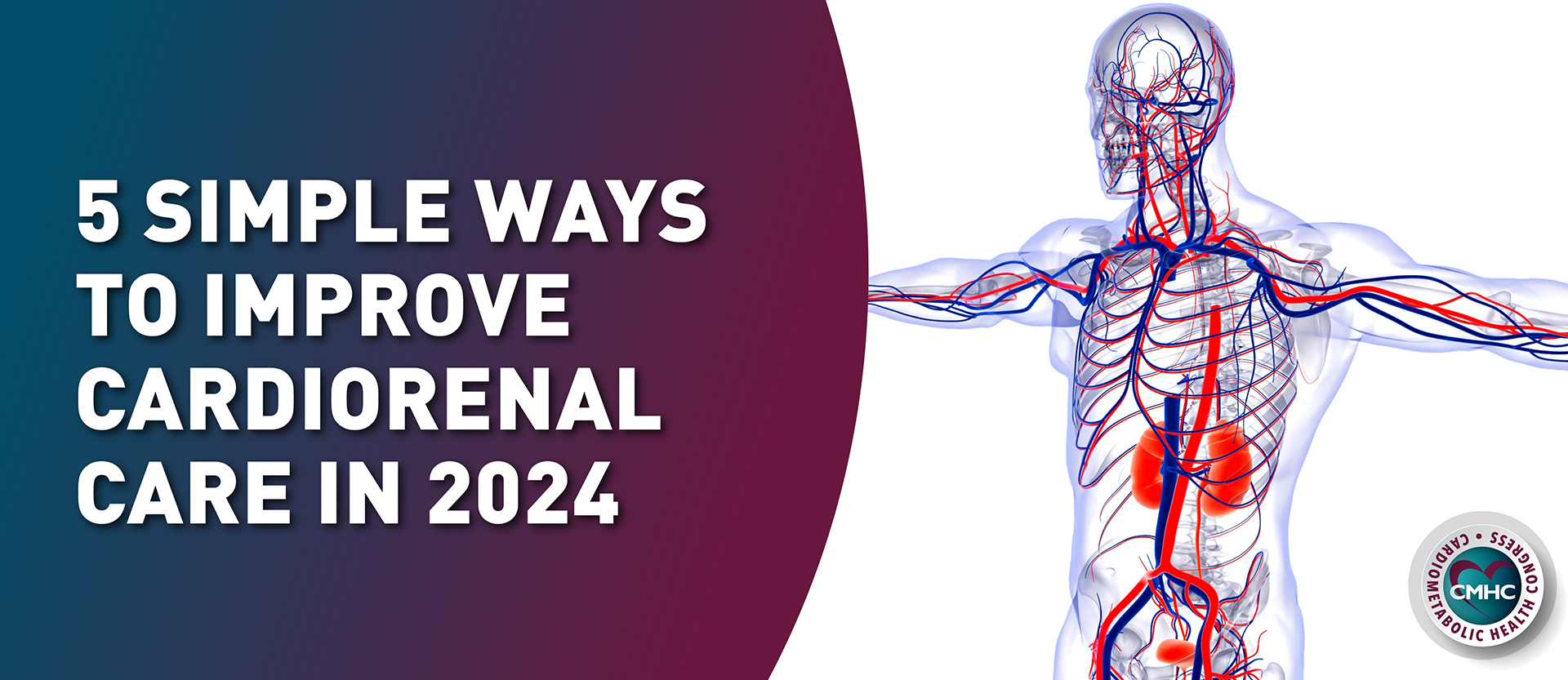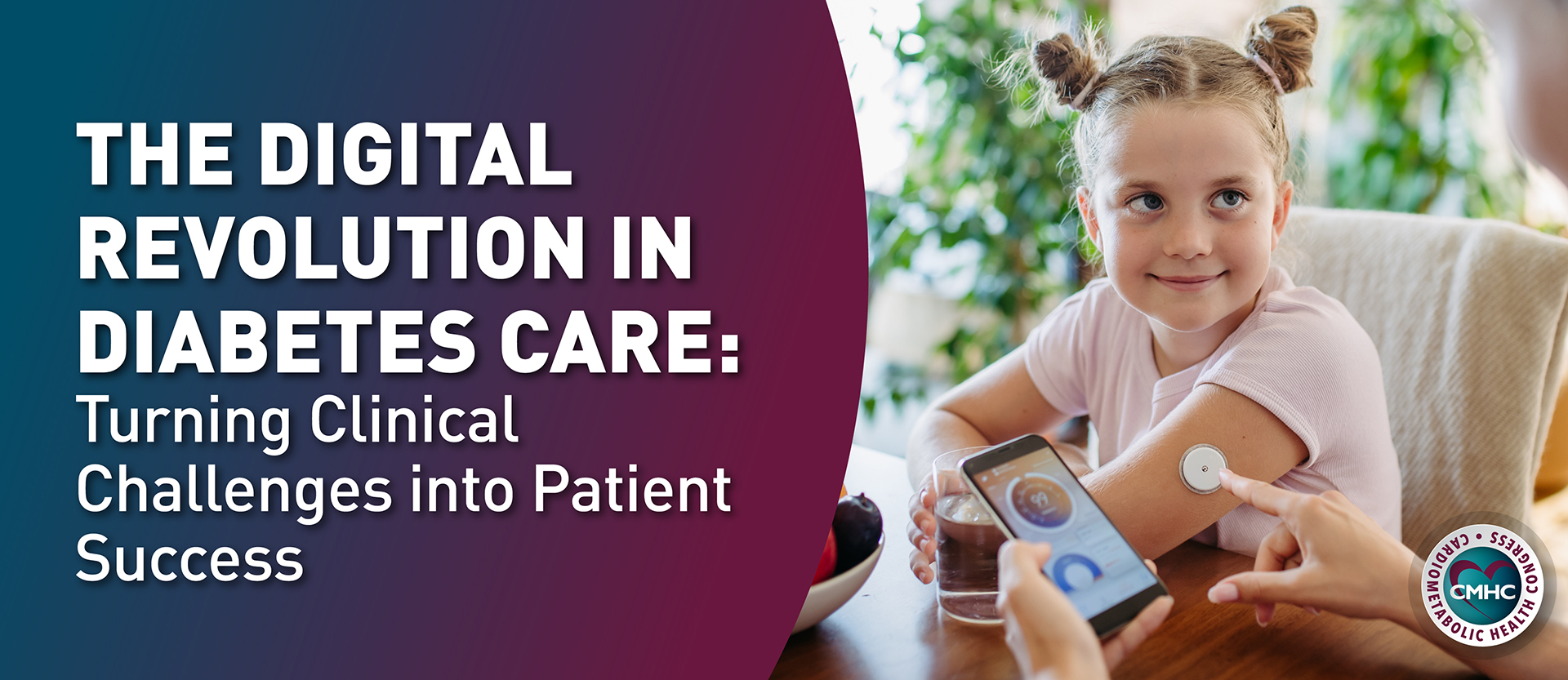
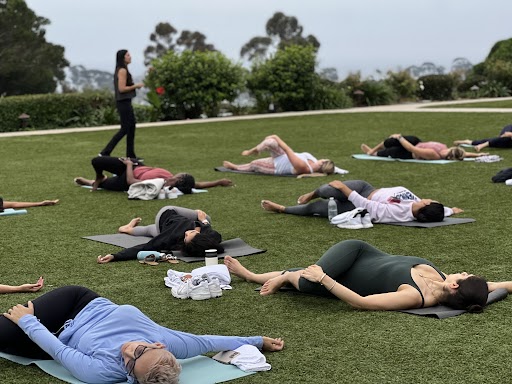
The second day of the 2023 Women’s Cardiometabolic Health and Wellness Masterclass began with a sunrise yoga session at 6:30 a.m., led by a local instructor from iHeartYoga. While some attendees took part in the outdoor class, others walked the venue grounds, enjoyed a breakfast buffet at Knife Modern Steakhouse, or indulged in some extra sleep before the breakfast session began at 8 a.m.
Lifestyle Changes to Improve Women’s Cardiometabolic Health
Conference co-chair Pam R. Taub, MD, made a glowing introduction as she welcomed the first faculty member on Friday, Aug. 18. “What’s really impressive about Martha Gulati, MD, is how she practices what she preaches. For example, she does not have a car. She walks to work every day. The really amazing thing is that, wherever in the world she is, she finds time to exercise. She woke up very early today and went for a jog. It’s incredible to me how she maintains this level of physical activity despite having such a hectic schedule, so it’s hard for us to make excuses when Martha is doing all these amazing things.”
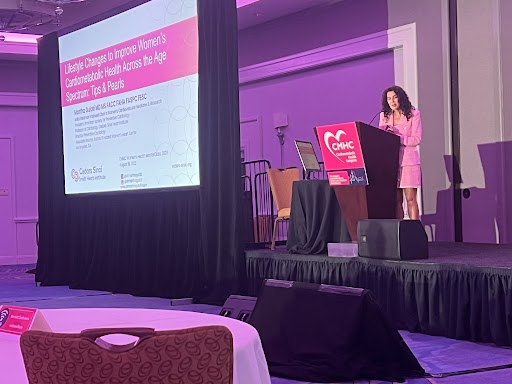
Dr. Gulati’s introduction was fitting because her session focused on lifestyle interventions to improve women’s cardiometabolic health. “Of course, we start with my favorite thing which is physical activity. But, quite honestly, physical activity is more than just exercise. I love this pyramid created by the CDC because it really emphasizes what you should be doing and what you shouldn’t be doing. We might ask patients what exercise they do, but physical activity such as gardening or cleaning in daily life is also beneficial.”
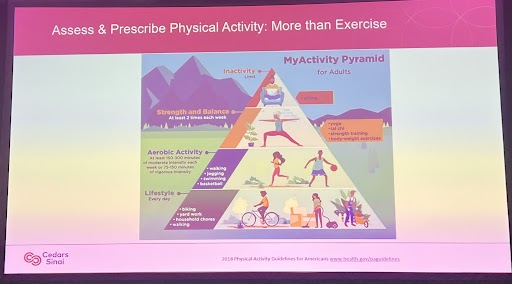
"I like the World Health Organization's definition of obesity, particularly how it relates to cardiometabolic health. It's a condition where an excess of abnormal body fat impairs health. I think this is more of a diagnosis, whereas BMI is just a screening tool that we use to help us get there."
Dr. Gulati
Optimizing Cardiometabolic Health in Underserved Populations
Dr. Taub welcomed the next speaker, Fátima Rodriguez, MD, MPH, to discuss the specific challenges faced when implementing the strategies introduced by Dr. Gulati in marginalized communities. “As a preventive cardiologist, I spend a lot of my time thinking about primordial prevention, which is to say that we really cannot start implementing healthy strategies early enough. This is something we can start with our patients’ children, asking how do we prevent the development of cardiovascular risk factors in the first place. Primary prevention really is the goal of public health.”
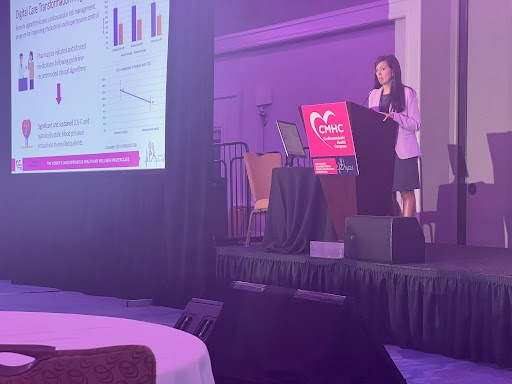
"The concept of intersectionality in the setting of underrepresented, minoritized, or vulnerable populations means that more than one of these high-risk characteristics are present, which compounds the effects of those already disparate cardiovascular health outcomes."
Dr. Rodriguez
Lunch, Refresh and Recharge

Functional Fitness
In keeping with the conference theme of provider wellness, all attendees were invited back to the Laguna Cliffs lawn for a Functional Fitness class hosted by CMHC staff member Aria Aloi. Performing cardio and strength training using only body weight is a great reminder that maintaining physical wellness while traveling is still possible! Aria proved that even when you don’t have access to a gym or your Peloton, you can still get a great workout using nothing more than your own body.
Resistant Hypertension in Women
Building off the feedback from last year’s conference, after the fitness class and lunch, attendees were encouraged to take advantage of the longer break this year and explore the venue, return to their rooms for a quiet moment to recharge, or relax and take in the view of the Pacific before afternoon sessions picked back up at 3:30 p.m.
One of CMHC’s longtime and most-esteemed faculty, Keith C. Ferdinand, MD, of Tulane University School of Medicine was the first male speaker welcomed to the stage in 2023. As a tireless advocate for controlling blood pressure, he focused his lecture on the specific concerns he has about managing hypertensive disorders in women. “The biggest problem I see in medicine is that we don’t have enough clinical trial data in women.” He noted that, in the absence of data to support clinical decisions, providers don’t have the ability to prescribe therapies with confidence.

"Hypertension is the most potent and prevalent risk factor for cardiovascular disease in women. About 10 million people have resistant hypertension, which is, unfortunately, a very reliable predictor of cardiovascular-related death."
Dr. Ferdinand
The Role of Testosterone in Cardiovascular Health
Matthew J. Budoff, MD, known to some as the Richard Gere of cardiology, informed the audience on the data on testosterone repletion. He confirmed that although a reciprocal relationship exists, whereby higher levels of testosterone are correlated with lower rates of mortality, in the US there are no guidelines for recommending testosterone replacement therapy in women. He commented that the only potential indication for such would be low libido, but that even for that it hasn’t been studied enough to instill confidence.
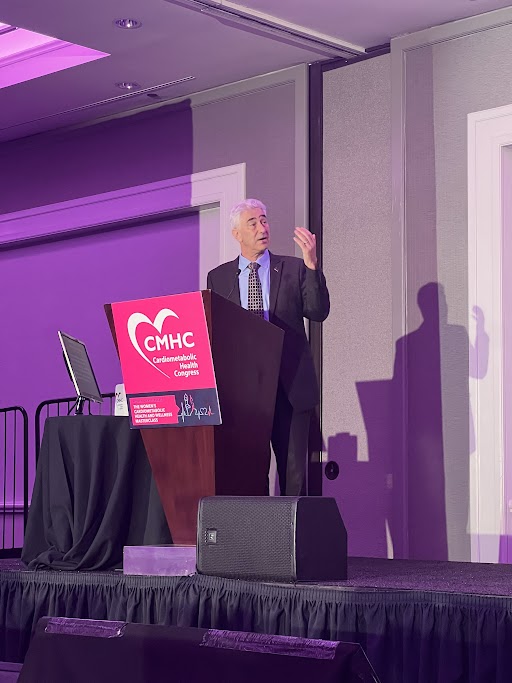
Challenges and Solutions in Lipid-Lowering Therapy in Women
A panel led by Dr. Michos and featuring Eugenia Gianos, MD, and Payal Kohli, MD, was perhaps one of the most unique experiences of the conference because of a special patient guest! Agnes Czuchlewski of New York was a patient of both Dr. Rachel Bond (a faculty member who presented on Thursday) and Dr. Gianos. Agnes delighted the crowd with her unique perspective on how providers can care for patients more effectively by resisting judgment, listening longer, and asking questions instead of assuming they know how a patient is handling their diagnosis.

Hypertension, Dyslipidemia and Hormones
The day’s final session was a lively panel discussion and interactive Q&A session was moderated by Christie M. Ballantyne, MD, who was joined by a panel consisting of Drs. Michos, Gianos, Ferdinand, Kohli, and Budoff from earlier in the afternoon. Audience members asked questions about hormone therapy, cholesterol, hypertension, and other management strategies specific to women. The attendees were captivated by the discussions, confirming this timely and underrepresented topic needs a wider breadth in medical education.

"We need to do everything possible to optimize the risk factors we can control."
Dr. Michos
